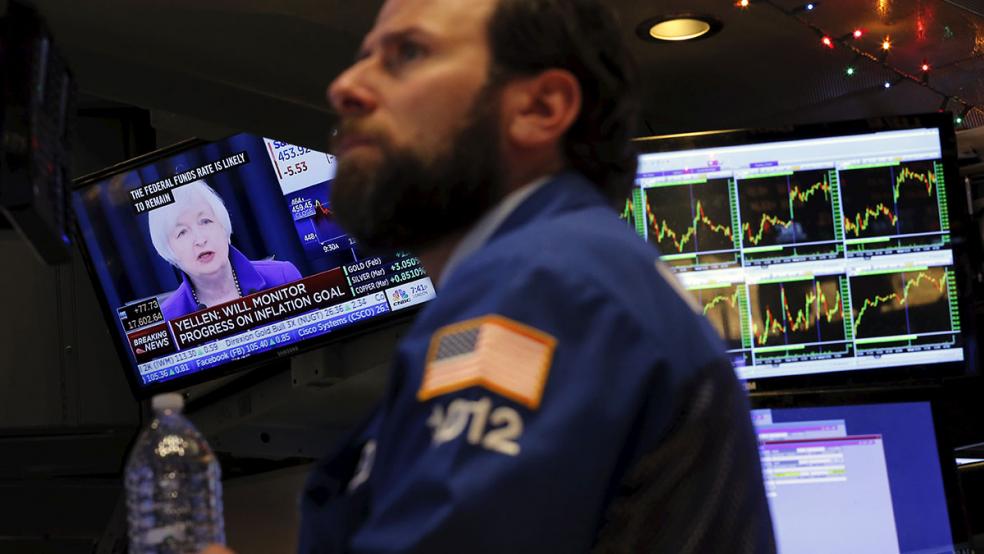For years, the Federal Reserve has been unable to convince the market it's serious about aggressively tightening policy. Janet Yellen and her cohorts have been guilty of "crying wolf," constantly warning of looming rate hikes, stretched asset price valuations and wage inflation pressure that was just around the corner. Yet time and time again, the futures market would price in a more dovish policy and the Fed's own "dot plot" projections of its rate hike path would move down to match where Wall Street was.
That could finally be changing now: Over the past two weeks, long-term Treasury bonds have suffered a sharp selloff, pushing up interest rates. The stock market has cooled its heels as well, pushing the tech-heavy Nasdaq Composite below its 50-day moving average in a major way for the first time since December.
Related: The Federal Reserve Bank, Explained
This is what the Fed apparently wants, as financial conditions have loosened since the rate hike campaign started in December 2015. The Fed hiked rates again last month, is promising to start a drawdown of its $4.4 trillion balance sheet as soon as September and has penciled in another rate hike before the end of the year. Yellen, Vice Chair Stanley Fischer and other policymakers have also issued a cavalcade of hawkish comments to drive their message home.
What’s behind the rush to normalize policy at this point? The Fed claims to be "data dependent" and yet the core data on economic growth hasn't changed — though, admittedly, the unemployment rate has fallen sharply, from 7.5 percent four years ago to 4.4 percent now. Even so, a Taylor Rule prescription calculated by the Atlanta Fed says interest rates should've started rising in President Obama's first year and reached 3 percent last summer in the heat of the presidential election.
Related: Six Risks That Should Make Stock Market Bulls Nervous
Chetan Ahya, Morgan Stanley's global co-head of economics, warned in a recent note to clients that the Fed may now be motivated by criticisms that it kept interest rates too low for too long during the housing bubble run-up from 2004 to 2007, distracted by low inflation and ignoring the financial stability risks of runaway real estate prices, mortgage securitization and risky underwriting practices.
Whatever the motivations of Yellen and her colleagues, traders could finally be taking the Fed seriously and coming to terms with the idea that the policy "punch bowl" really is being taken away in an environment where worries about inflation are being spurred by everything from labor market tightness to chatter about possible import price tariffs (on steel in particular) from the Trump administration.
For the average American, the consequences of the Fed’s hawkishness will be higher rates on home and auto loans as well as fewer credit card offers. For investors, the Fed’s stance may mean losses on bond holdings.
Related: Is the Fed About to Wage War on the Rich?
Watch Yellen's testimony to Congress on Wednesday for a continuation of the theme. The Fed's latest Monetary Policy Report, released on Friday, pointed out valuation pressures across a range of assets as risk appetites continue to run hot.
The Fed has coyly warned of asset prices being extended before, including comments by Yellen in May 2015 and, before that, in a July 2014 warning about biotech and social media stocks. The market was quick to dismiss them. Yellen could be eager to change that dynamic now.






